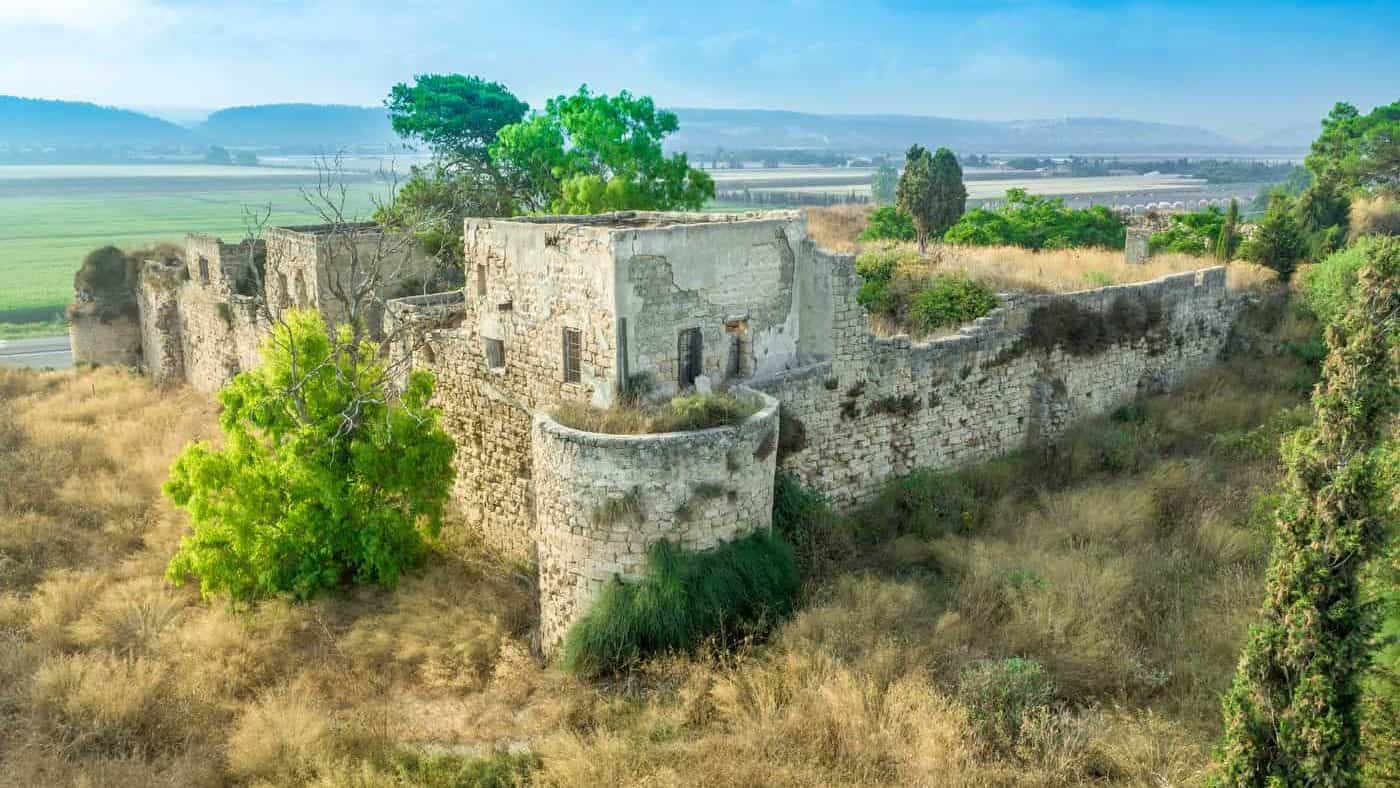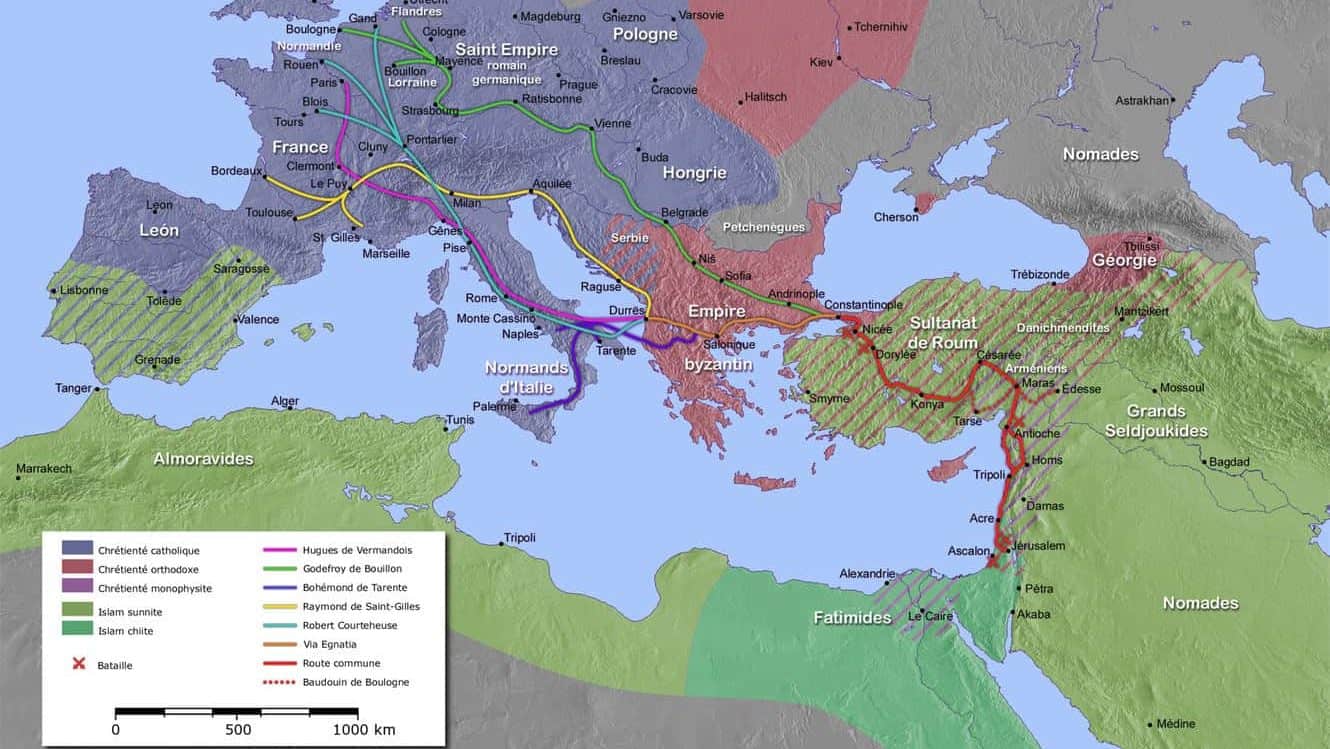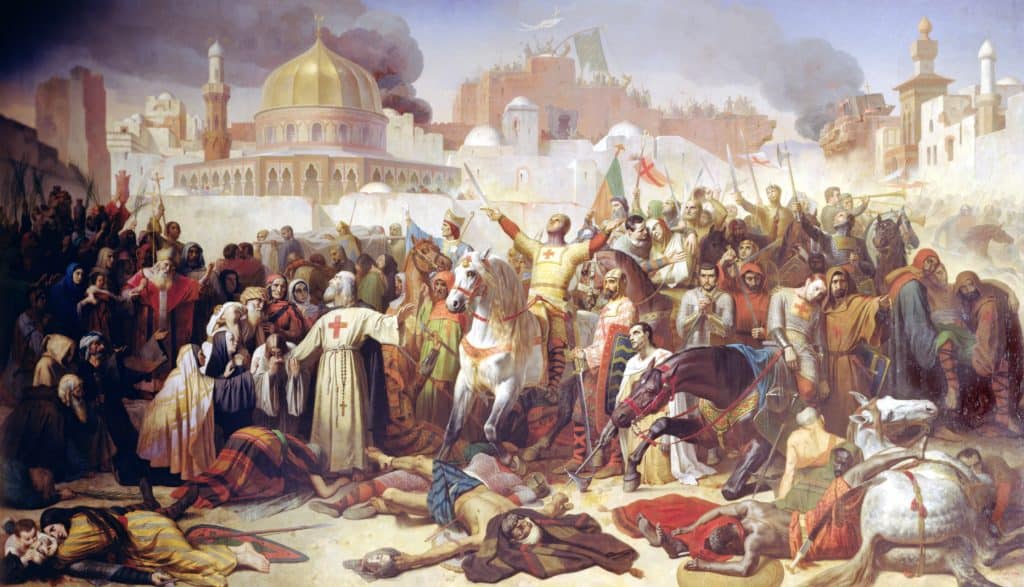The First Crusade was a major military expedition launched by European Christians in the late 11th century, primarily in response to Pope Urban II’s call at the Council of Clermont in 1095. Furthermore, this call was made to reclaim the Holy Land, particularly Jerusalem, from Muslim control. The First Crusade is sometimes called the “People’s Crusade,” as several others followed it over the centuries.
Here Are Some Key Points About the First Crusade:
Pope Urban II’s Call: In 1095, Pope Urban II called for a holy war against the Muslims who controlled Jerusalem. Moreover, He urged Christians to take up arms and liberate the Holy Land from what he perceived as Muslim occupation.
Leadership: Several European nobles and leaders took up the call, including Raymond IV of Toulouse, Godfrey of Bouillon, Bohemond of Taranto, and Baldwin of Boulogne. Each of them led their contingents of Crusaders.
Crusader Castle in Israel

The Journey: The First Crusaders began their journey to the Holy Land in 1096, crossing Europe and Asia Minor (modern-day Turkey). Moreover, they faced numerous challenges, including harsh weather, famine, and attacks from local populations.
Siege of Antioch: One of the most significant events of the First Crusade was the Siege of Antioch, which lasted from October 1097 to June 1098. After a prolonged and difficult siege, the Crusaders captured the city.
Capture of Jerusalem:
The climax of the First Crusade came in July 1099 when the Crusaders reached Jerusalem. After a brutal siege, they successfully breached the city’s walls and took control. The capture of Jerusalem marked a turning point in the Crusades.
People's Crusade
Establishment of Crusader States: After the successful capture of Jerusalem, Crusader states were established in the region, including the Kingdom of Jerusalem, the County of Edessa, the Principality of Antioch, and the County of Tripoli. These states were ruled by European nobles and existed for several centuries.
Second Crusade

Legacy: The First Crusade was considered a success by its participants, but it also set the stage for further conflict in the Holy Land. Subsequent Crusades aimed to maintain or expand Christian control in the region but met with varying success and failure.
Siege of Jerusalem 1099

So, the First Crusade had a profound and lasting impact on the history of the Middle East and Europe. Lastly, it led to the establishment of Crusader states, increased contact and conflict between Western Christendom and the Islamic world, and contributed to the broader history of medieval warfare and religious fervor in the Middle Ages.

